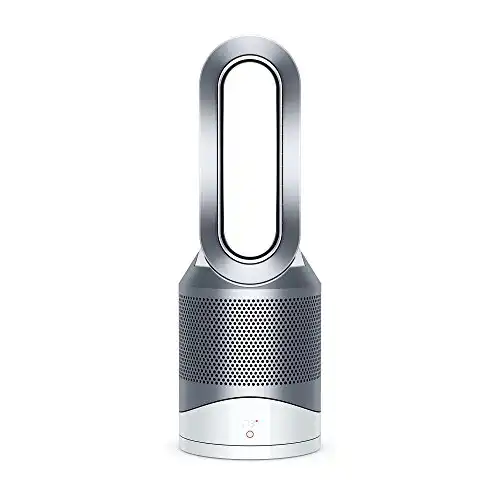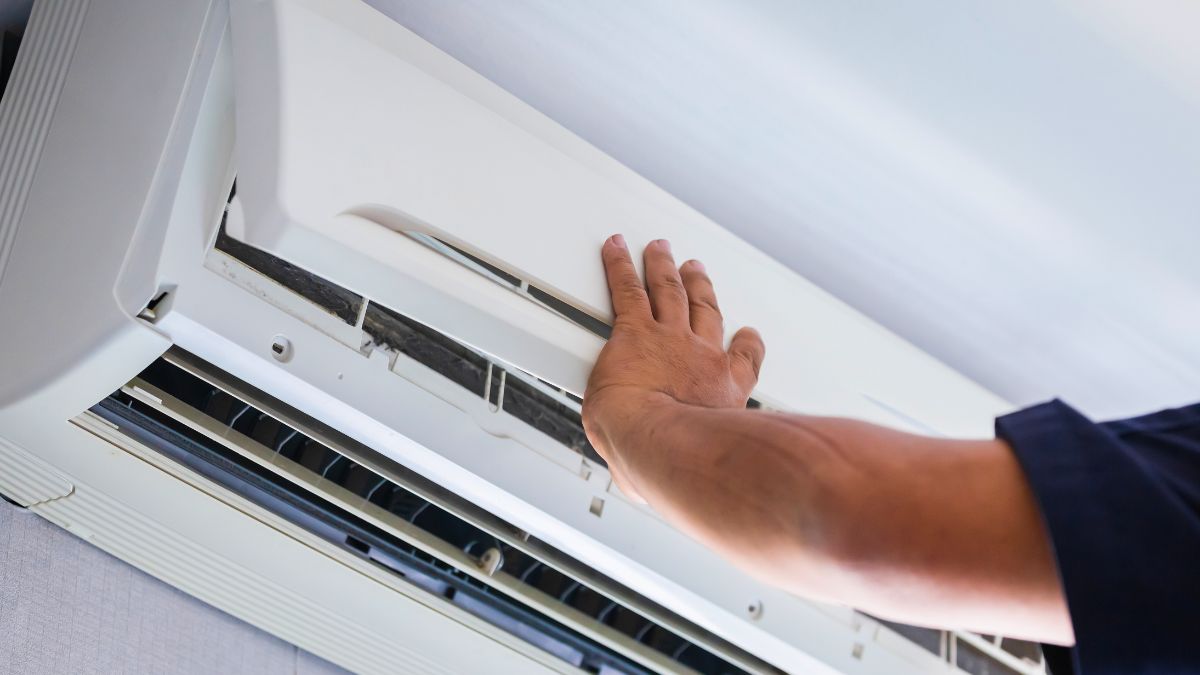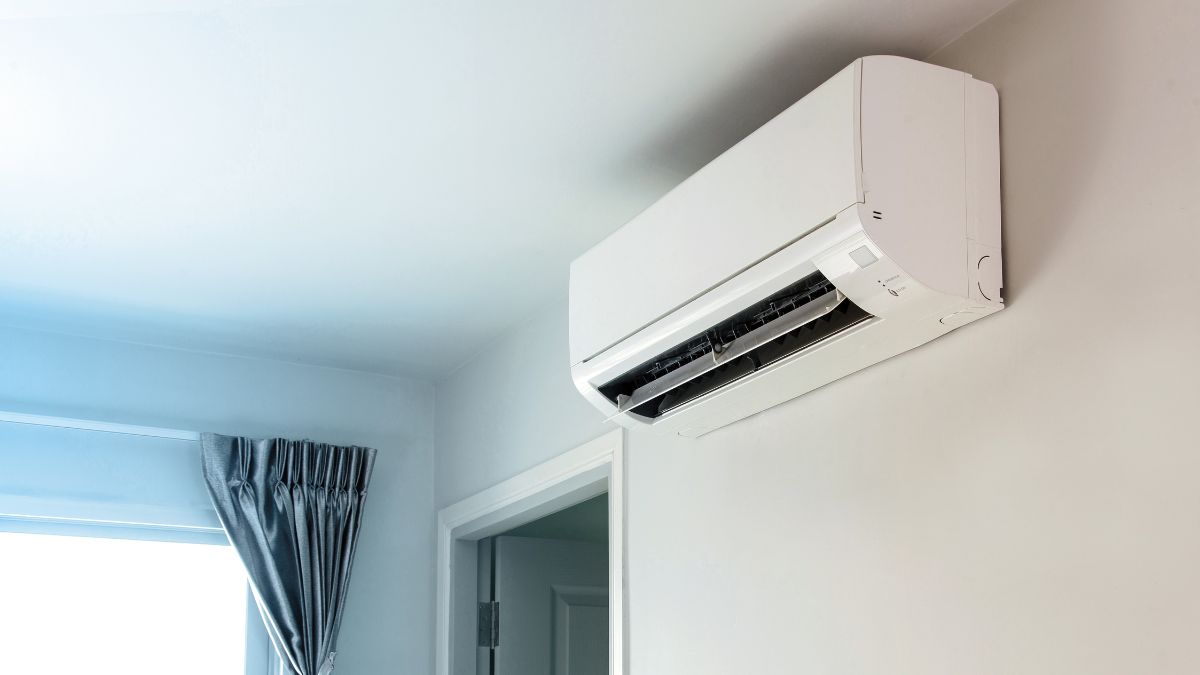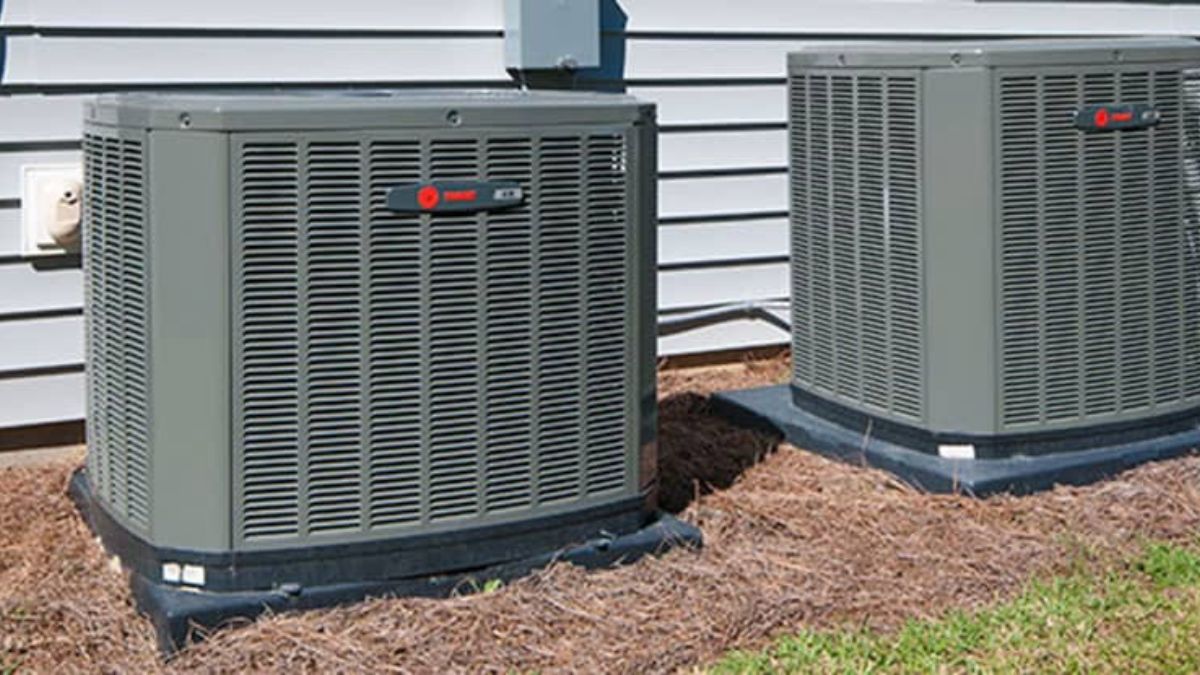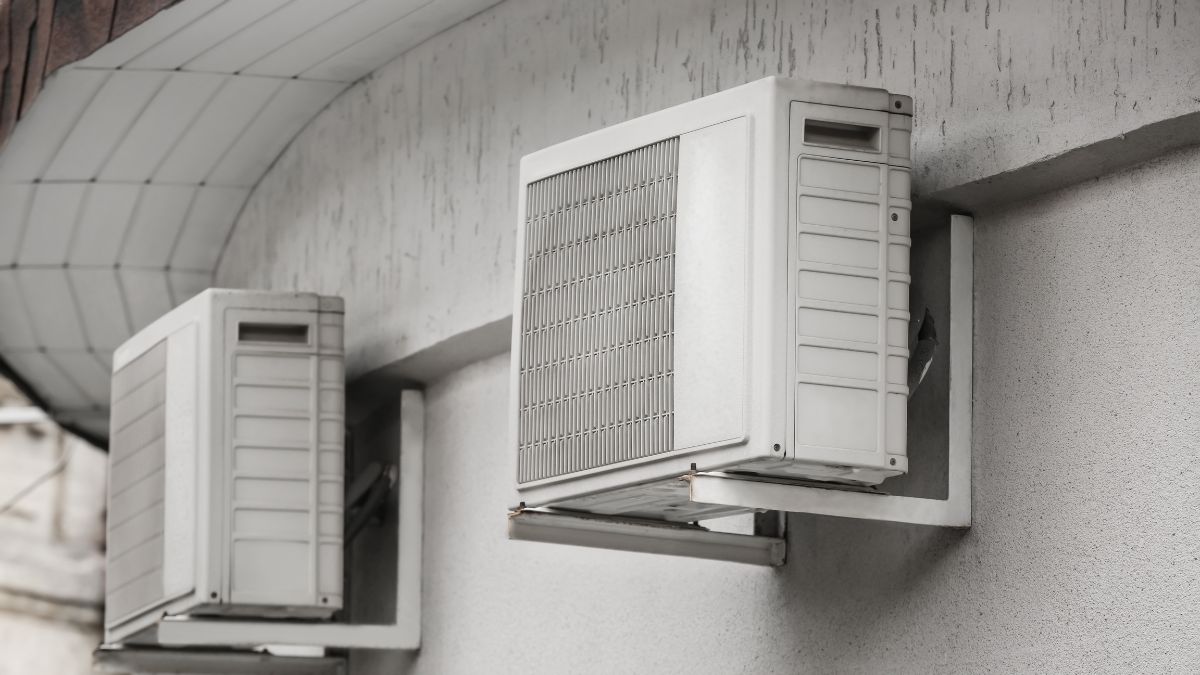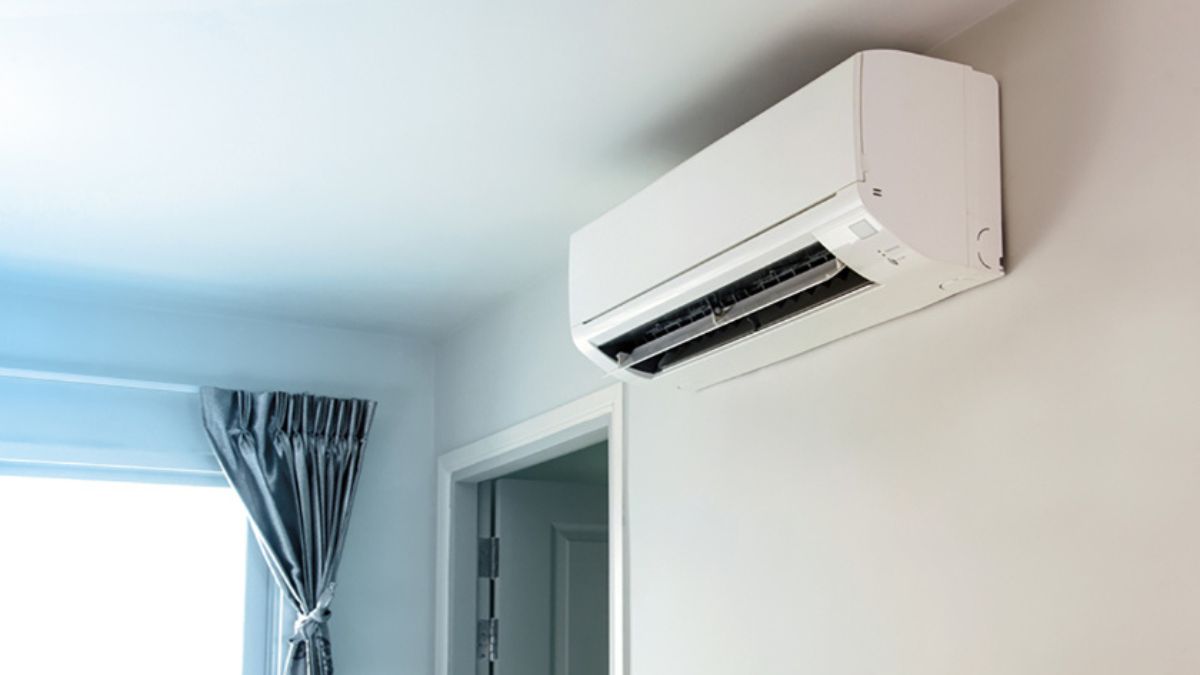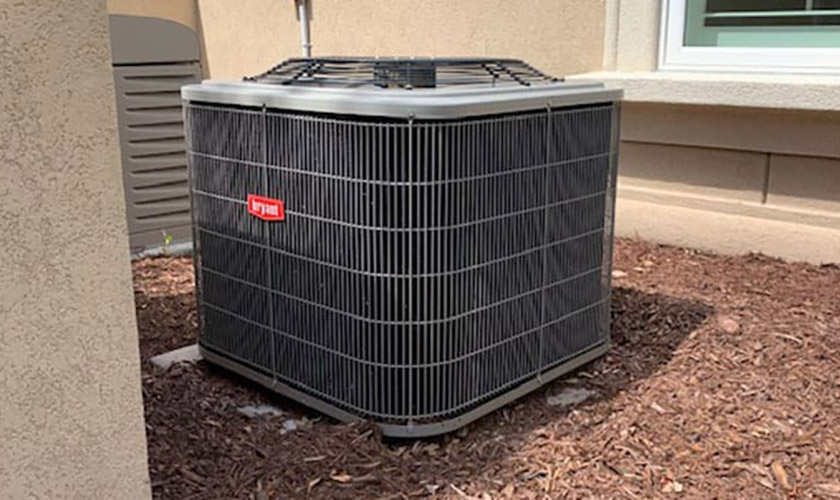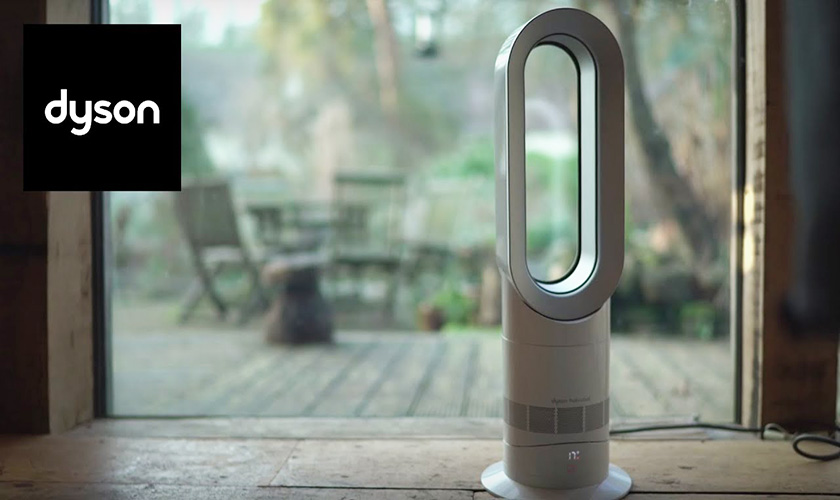
“Don’t mess with the indoor air.” That is one of the sacred rules in many homes. The last thing you want in your home is unfavorable air conditions INSIDE the house. That’s why most homeowners get the best equipment for indoor air conditioning. Dyson, in a way, deals in such products.
Dyson has a wide range of innovative products for air purification and indoor home convenience. But Dyson does not make air conditioners. Dyson’s closest appliance to an air conditioner is the Dyson Pure Cool bladeless fans and Dyson Air Purifier. Other innovations include vacuum cleaners and hand-dryers.
Dyson’s bladeless fans have been at the center of many questions. Are they air conditioners? Are they effective? And most importantly, are they worth the price? Well, we’ll answer all those questions for the next time you find yourself hunting for colder options.
Is Dyson Pure Cool an Air Conditioner?
The Dyson Pure Cool is not an air conditioner. By definition, an air conditioner changes the air temperature in a room.
As much as the Dyson Pure Cool changes the temperature around the room, it doesn’t heat or cool the room. The Dyson Pure Cool moves the air around a room. Dyson Pure Cool is a fan that blows air into the room.
Let’s examine how both units work.
How an Air Conditioner Works
Air conditioners have five things that guide how they work:
- The compressor: Converting hot low-pressure air to cool high-pressure air.
- Evaporator coil: Where hot low-pressure air passes.
- Condenser coil: Where high-pressure air passes.
- Expansion valve: Removes pressure from the cooling agent and allows it to change between liquid and gas.
- A cooling agent (refrigerant): Also known as freon.
Step 1: Switching on the air conditioner sucks in the room’s hot air. The hot air passes through filters near the entrance.
Step 2: The cooling agent passes through the compressor and converts to high pressure.
Step 3: At this point, the cooling agent is hot. It goes through the condenser coil, where the excess heat blows through a fan in the AC.
Step 4: The hot liquid under high pressure goes through the expansion valve to the evaporator coil and cools down.
Step 5: The cool liquid goes through the evaporator coil, also cooling the coil
Step 6: The hot, filtered air passes through the evaporator coil and blows cool air outward through a fan near the coil.
These six steps repeat every time the room gets hot.
How a Dyson Fan Works
When you power up a Dyson fan, the motor sets in rotation. The motor rotates the blades in the blower to suck in air from the surrounding.
You must be asking, but where are the blades in a bladeless fan? The edges are hidden inside in the bottom half of the fan.
The air goes up to the hollow tube (every fan has a uniquely designed hollow tube). It circulates through the pipe back down to the fan and comes out from the fan.
However, unlike conventional fans, the air comes in a regular stream. Visually, it would look like straight lines that disburse in different directions. Again unlike fans, Dyson fans claim to amplify the air intake. Dyson calls Pure Cool an Air Multiplier.
Difference Between Air Conditioner & Air Purifier
The Dyson Pure Cool isn’t ONLY a fan. It’s a combination of an air purifier and a fan.
A purifier sucks in dusty, allergen-filled air from the room. It passes the air through an initial filtration system where the filters trap large particles. The more refined air is passed through other filters to clean up with no contaminants.
The Dyson Pure Cool, for example, has a HEPA filter. The HEPA filter traps 99.97 percent of particles that are 0.3 microns.
The filter is essential since 0.3 microns is the most penetrating particle size. The air released from a system with a HEPA filter is mostly pure.
The resultant air is cleaner, allergen, and contaminant-free. One of the most glaring differences between an air purifier and an air conditioner is that an air conditioner has an outlet outside the house. An air purifier only needs to be connected to the electrical outlet.
An air purifier improves the quality of your indoor air. One of the most endearing qualities of Dyson Pure Cool fans is that it makes your indoors more comfortable when you don’t have to worry about your allergies acting up.
On the other hand, an air conditioner makes sure you’re not dealing with uncontrolled humidity. It makes the room more habitable.
Do Dyson Fans Cool the Air?
Dyson fans don’t cool the air. The cooling sensation you feel when the Dyson fan is in action is cool air hitting you and cooling the sweat on your body. If you left the Dyson fan in a hot room and returned after a while, you’d find the room almost as hot as you left it.
It’s a great air purifier and does a great job of directing air, but it works exactly like a regular fan, albeit with better innovations.
It’s the perfect opportunity to simultaneously use an air conditioner and an air purifier. The air conditioner can cool the room on hotter days. Also, it will lower the humidity. You get purer air AND a cooler space.
Can Dyson Pure Cool Replace Air Conditioner?
The Dyson Pure Cool can’t replace an air conditioner. At least not for the purpose that an air conditioner serves. An air conditioner’s main job is to regulate heat and humidity in the home.
These two core functions are things a Dyson Pure Cool does not do. On the other hand, the Dyson Pure Cool is vital for ridding indoor air of contaminants.
Still, there are situations where you can prefer the Dyson Pure Cool over air conditioners:
1. To Improve Your Home’s Air Quality
Air conditioners have some filtration systems in them. However, they are most specialized in regulating heat in the home. Air purifiers have two or more filtration systems to ensure your home’s indoor air is pure.
Dyson Pure Cool fans have HEPA filters. HEPA (High-Efficiency Particle Arrestor) is a filter that grabs the tiniest particles from the air and releases pure oxygen-free of allergens and contaminants.
The US Atomic Energy Commission (AEC) invented HEPA filters to trap radioactive dust particles.
HEPA filters are so effective that the Environmental Protection Agency (EPA) and Occupational Safety and Health Administration (OSHA) approved them for use in commercial and residential places.
2. You Have People in the House With Recurrent Respiratory Problems
Allergens can flare up your allergic reactions. If you have someone in the house suffering from respiratory issues such as asthma, allergen-laden air could lead to a terrible response. HEPA filters trap allergens such as pollen and dust to reduce the likelihood of such incidences.
Also, unstable weather conditions can affect your respiratory needs.
John Hopkins University investigated the relationship between rising temperatures and chronic obstructive pulmonary disease (COPD). They found a link between the two factors.
An air purifier is essential in such a house since hot air increases the density and movement of dust particles in a home. It would help if you filtered the particles out to maintain the home’s air purity.
3. Your Home is Prone to Mold & Odors
Humidity is a significant cause of mold and mildew. Mold and smut thrive in damp places. The spores they produce go on to make foul odors in the home. An air purifier might not lower the home’s humidity, but it will capture the spores from the mold.
Air purifiers also reduce foul odors in indoor air. However, the cleaner must have charcoal-activated filtration in it to work against odors.
4. You Live in a Relatively Weather-Stable Environment
Places that experience extreme hot or cold temperatures need an air conditioner. Such areas have a persistent humidity problem.
However, humidity might not be such a big deal in areas with moderate hot months and cold months. In that case, a homeowner could opt for an air purification system over air conditioning.
5. You’re a Pet Owner
Pets, especially those that love to play outdoors, carry plenty of dust into the house. Additionally, pets shed. The fine dust particles in pet fur end up in the air inside the home.
Pet fur and fine dust can lead to breathing issues or allergic reactions. The fine dust particles and hair stick to the filter when the air purifier takes in the indoor air.
If you clean your home regularly, an air purifier only improves indoor air.
Bonus point: If you meet all the conditions where an air purifier is more practical than an air conditioner, perhaps you’d love to know air purifiers are more environmentally friendly.
Air conditioners are necessary. However, refrigerants have been a topic of discussion about environmental consciousness.
Can Dyson Fan Cool a Room?
Ideally, a Dyson Fan CAN cool a room. However, you would have to limit it to a small space. Dyson fans have settings that allow you to slightly alter the room temperature in a small area. For instance, the Dyson AM09 and Dyson HP02 have cooling and heating functions.
You can feel the cooling effects of a Dyson fan in a small room if there is no hot air coming from outside. You’d have to make the space conducive for noticeable cooling. For example, draw the curtains to block out the sun before you power on your Dyson fan.
However, you can increase fan speed to blow out cool air to a longer distance. An experiment showed a Dyson blowing out air at 3.1 miles per hour.
An anemometer picked up the pace six feet away from the fan. Constant air like that will typically circle the room if there is no incoming heat source. You can find this video down below for more results.
Are Dyson Fans Worth the Money?
Dyson fans have two things that bring out sharp reactions from people; the innovative designs and the price. With price tags upward of $300, it’s easy to see why someone would question if it’s worth the money, especially when comparing a Dyson fan to a conventional blade fan.
These are some of the features that might make you say getting a Dyson fan is worth it despite the price tag.
1. They Purify the Air
The air purification feature of some of the Dyson fans is one of its most redeeming qualities. The HEPA filter and activated charcoal are a great combination indoors when you want to bask in fresh contaminant-free air.
2. They Have Smartphone Connectivity
The smartphone connectivity via Dyson Link App is a nifty feature that gives you control of the fan. You can see and adjust all the vitals, such as fan speed and oscillation.
However, you can use the sleek aluminum remote if you don’t want to use your phone. The best part is, that you won’t be operating blindly. The tiny color LCD screen on the Dyson fan shows you what you are doing and what is happening.
It auto-detects any contamination in the room. You’ll see a small graph on the screen indicating a change in the air. It shows you as the air purifier works to decrease the contamination in the room.
3. They Can Remove Odors
Odor removal is not a feature in every Dyson fan. It is not a feature in every air purifier. An air purifier has activated charcoal filters to remove odors such as smoke.
Some higher-priced Dyson fans, such as the Dyson Purifier Cool Formaldehyde™ TP09, can automatically detect and neutralize Formaldehyde.
4. They Have Voice Command
Convenience doesn’t come any better than voice control in Dyson fans. You can get voice control in models like Dyson Purifier Cool TP07 and Dyson Cool Link DP01 desktop fan.
5. They Have Multiple Functionality
The Dyson fan product lineup is a fascinating range of appliances. Here are some of the variations.
- Cool and heat
- Cool and purify
- Cool, purify, and humidify
- Cool, purify, and eliminate formaldehyde.
Such product diversity ensures everyone has a product that fits their needs. The smaller fans are great for personal workspaces since you can put them on a work desk and enjoy the cool air as you work.
6. You Can Direct the Airflow
Typically, the Dyson fan blows air in a straight stream. However, you can press a button on the remote that changes the airflow to feel like it’s blowing more to the sides.
It’s a cool feature when you don’t want the direct effect. Still, you can change the setting to get the air blowing directly at you.
However, Dyson fans are not exempt from shortcomings as good as they are and as good as they look. Dyson fans can get noisy. They are noisier as you increase the fan speed.
The noise is a result of the fast-rushing air the fan blows out. It makes the fan inconvenient in a setting where you need a cool yet quiet place.
Final Thoughts
There have been murmurs here and there that the Dyson fan Pure Cool is a misleading name. However, the Dyson Pure Cool is undoubtedly an impressive household appliance. It might be steeper when considering the price, but the features make it worthwhile.
If you’re looking for a dedicated air and room heater and cooler, go for an air conditioner. Otherwise, get your choice of Dyson fan if air purity is one of your top priorities.


